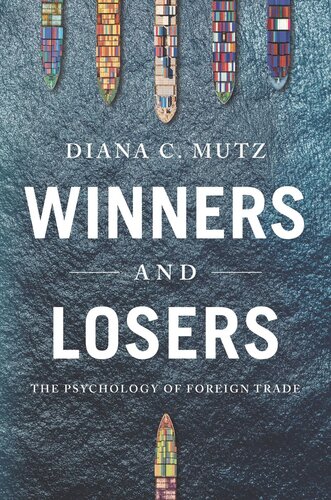

Most ebook files are in PDF format, so you can easily read them using various software such as Foxit Reader or directly on the Google Chrome browser.
Some ebook files are released by publishers in other formats such as .awz, .mobi, .epub, .fb2, etc. You may need to install specific software to read these formats on mobile/PC, such as Calibre.
Please read the tutorial at this link: https://ebookbell.com/faq
We offer FREE conversion to the popular formats you request; however, this may take some time. Therefore, right after payment, please email us, and we will try to provide the service as quickly as possible.
For some exceptional file formats or broken links (if any), please refrain from opening any disputes. Instead, email us first, and we will try to assist within a maximum of 6 hours.
EbookBell Team

0.0
0 reviewsFrom acclaimed political scientist Diana Mutz, a revealing look at why people's attitudes on trade differ from their own self-interest
Winners and Losers challenges conventional wisdom about how American citizens form opinions on international trade. While dominant explanations in economics emphasize personal self-interest—and whether individuals gain or lose financially as a result of trade—this book takes a psychological approach, demonstrating how people view the complex world of international trade through the lens of interpersonal relations.
Drawing on psychological theories of preference formation as well as original surveys and experiments, Diana Mutz finds that in contrast to the economic view of trade as cooperation for mutual benefit, many Americans view trade as a competition between the United States and other countries—a contest of us versus them. These people favor trade as long as they see Americans as the "winners" in these interactions, viewing trade as a way to establish dominance over foreign competitors. For others, trade is a means of maintaining more peaceful relations between countries. Just as individuals may exchange gifts to cement relationships, international trade is a tie that binds nations together in trust and cooperation.
Winners and Losers reveals how people's orientations toward in-groups and out-groups play a central role in influencing how they think about trade with foreign countries, and shows how a better understanding of the psychological underpinnings of public opinion can lead to lasting economic and societal benefits.